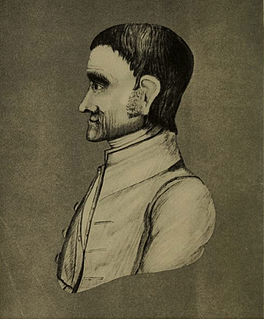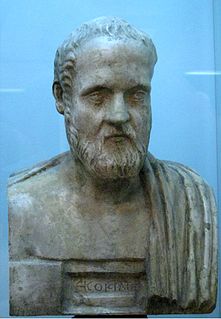A Quote by Henry Fielding
A tender-hearted and compassionate disposition, which inclines men to pity and feel the misfortunes of others, and which is, even for its own sake, incapable of involving any man in ruin and misery, is of all tempers of mind the most amiable; and though it seldom receives much honor, is worthy of the highest.
Related Quotes
Thus He whose tender mercies are over all His works hath placed a principle in the human mind, which incites to exercise goodness towards every living creature; and this being singly attended to, people become tender-hearted and sympathizing; but when frequently and totally rejected, the mind becomes shut up in a contrary disposition.
Good-nature is that benevolent and amiable temper of mind which disposes us to feel the misfortunes and enjoy the happiness of others, and, consequently, pushes us on to promote the latter and prevent the former; and that without any abstract contemplation on the beauty of virtue, and without the allurements or terrors of religion.
Philosophers have long conceded, however, that every man has two educators: 'that which is given to him, and the other that which he gives himself. Of the two kinds the latter is by far the more desirable. Indeed all that is most worthy in man he must work out and conquer for himself. It is that which constitutes our real and best nourishment. What we are merely taught seldom nourishes the mind like that which we teach ourselves.
The good or evil we confer on others very often, I believe, recoils on ourselves; for as men of a benign disposition enjoy their own acts of beneficence equally with those to whom they are done, so there are scarce any natures so entirely diabolical as to be capable of doing injuries without paying themselves some pangs for the ruin which they bring on their fellow-creatures.
I know that most men, including those at ease with problems of the greatest complexity, can seldom accept even the simplest and most obvious truth if it be such as would oblige them to admit the falsity of conclusions which they have delighted in explaining to colleagues, which they have proudly taught to others, and which they have woven, thread by thread, into the fabric of their lives.
Under a government which imprisons any unjustly, the true place for a just man is also in prison, the only house in a slave State in which a free man can abide with honor. They do not know how much truth is stronger than error, nor how much more eloquently and effectively he can combat injustice who has experienced a little in his own person. If the alternative is to keep all just men in prison, or give up war and slavery, the State will not hesitate which to choose.
Destiny ... a word which means more than we can find any definitions for. It is a word which can have no meaning in a mechanical universe: if that which is wound up must run down, what destiny is there in that? Destiny is not necessitarianism, and it is not caprice: it is something essentially meaningful. Each man has his destiny, though some men are undoubtedly "men of destiny" in a sense in which most men are not.
Pity is a sense of our own misfortunes in those of another man; it is a sort of foresight of the disasters which may befall ourselves. We assist others,, in order that they may assist us on like occasions; so that the services we offer to the unfortunate are in reality so many anticipated kindnesses to ourselves.
It is rare to find a man who believes in his own thoughts or speaks that which he is created to say. As nothing astonishes men so much as common sense and plain dealing, so nothing is more rare in any man than an act of his own...feel yourself, and be not daunted by things...The light by which we see this world comes out from the soul of the observer.





































